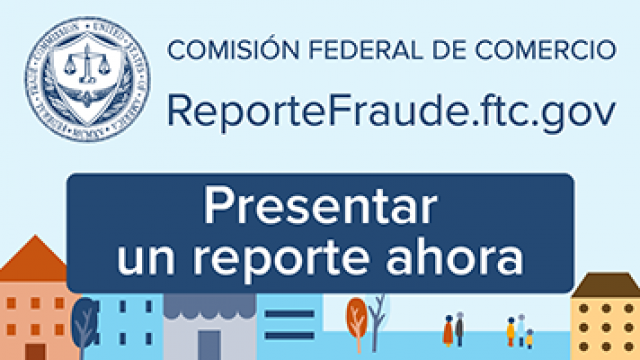Learn about the latest scams, and get advice to help you avoid, report, and recover from them.
Displaying 141 - 160 of 650
Consumer Alert
If you’re paying a medical, utility, or other bill online, you probably expect to wind up on the company’s website. What might you not expect? An impersonator tricking you into paying them instead. But that’s what the FTC says a company called Doxo did. Here’s what you need to know.
Consumer Alert
Are you having a hard time paying your mortgage? Even if you’ve missed payments or you’re already facing foreclosure, you still might have options. You really do, but that’s the same thing scammers will tell you. Fortunately, there are ways to spot mortgage relief scams while you focus on saving your home.
Consumer Alert
If you’re looking for a new job, getting paid to shop might sound like a dream. Companies hire mystery shoppers to try products or services and share experiences about things like buying or returning something, or their overall customer experience. But while some mystery shopping jobs are legitimate, many aren’t. So how do you spot the scams?
Consumer Alert
Hearing a lot about federal student loan forgiveness in the news? You’re not alone — scammers are, too. You might get a call from someone saying they’re affiliated with Federal Student Aid (FSA) or the Department of Education. (They’re not.) They’ll say they’re following up on your eligibility for a new loan forgiveness program, and might even know things about your loan, like the balance or your account number. They’ll try to rush you into acting by saying the program is available for a limited time. But this is all a scam. What else do you need to know to spot scams like this?
Consumer Alert
Thinking about applying for a job with the United States Postal Service (USPS)? Make sure you’re dealing with the real thing. Scammers advertise jobs that don’t actually exist to try to steal your money and personal information — and one way they do that is by pretending to be USPS. So how do you know if that postal ad or offer you get is a scam?
Consumer Alert
Sharing a scam experience with someone you know takes courage. If someone trusts you enough to share their scam story, especially if the scammer is still in touch with them, here’s some advice to help guide you.
Consumer Alert
Getting hired might feel like the ultimate high. But finding out it was just a scammer trying to steal your money will bring you — and your bank balance — right back down. Many college students look for virtual jobs they can do while going to school, but if a new employer mails your first paycheck before you even start working, that’s your cue to stop — it’s a scam.
Consumer Alert
If a call sounds like your boss (asking for bank account numbers) or your family member (begging for help in an emergency), you’re more likely to act. That’s why scammers use voice cloning to make their requests for money or information more believable. And the FTC is fighting back.
Consumer Alert
Maybe you — or even your pet — are an influencer. But did you know that scammers might target you with phony job opportunities? You might get a message on social media, supposedly from a recruiter or “brand ambassador manager” of a national company. They say they’ll send you free products and pay you big bucks to promote and tag their stuff on social media. All you need to do, they say, is give them your banking information so they can pay you. But this isn’t a job opportunity. It’s a scam, and here’s how to avoid it.
Consumer Alert
If you’re a regular reader of this blog, you know that every year we report on the top scams people tell us about. And that we take a deeper dive into the data through our Data Spotlight reports. A new Data Spotlight about business and government imposters shines a light on the top imposter scams.
Consumer Alert
You’re looking to make some extra money and you get a text or email, or see an ad on social media: get paid to wrap your car and drive around. And the offers can sound good: $600-700 a week to drive around with an ad for some well-known company (usually an energy drink). Many times, these offers are scams — here’s how to spot them.
Consumer Alert
Maybe you weren’t thinking about selling your timeshare — but suddenly, someone calls and tells you they’re a real estate agent and have an interested buyer. They might have information about you and your property, so the offer seems credible. Then, the so-called timeshare expert asks you to pay upfront to finalize the deal. Stop. That could be a scam.
Consumer Alert
As a nanny or caregiver, you know that families and employers trust you to take care of their children or older adults. It’s the same trust that scammers want to build with you when they post ads for fake jobs to steal your money and personal information. So how do you spot the scam?
Consumer Alert
When it comes to small business loans, time is money. That was especially true early in the pandemic: when many small businesses were struggling to stay open, and Paycheck Protection Program (PPP) funds were limited. So, when Womply advertised that small businesses, including gig workers and one-person small businesses, could get fast PPP funding if they applied through the company, millions of applications came pouring in. The problem, says the FTC, is that Womply didn’t live up to its promises. And that hurt millions of small businesses.
Consumer Alert
Delays in processing loans needed by small businesses in an emergency — like the pandemic — can leave them struggling to stay open. And deceiving consumers about these delays violates the law. The FTC says that's what happened when small businesses applied for emergency Paycheck Protection Program loans from Biz2Credit Inc.
Consumer Alert
Did you pay Benefytt, which also did business as “MyBenefitsKeeper,” for a health plan or product that didn’t deliver the comprehensive insurance coverage the company promised? You might be getting some of your money back.
Consumer Alert
With all the security threats out there, you might be tempted to click on a pop-up or ad for a “free” scan to keep your computer safe. Especially if you see a Windows logo. The problem? They’re impersonating well-known companies and scaring you into paying to fix computer problems that may not exist.
Consumer Alert
When you’re planning a trip — whether it’s a last-minute spring break vacation or another trip — you might be tempted to jump on an offer for a great deal. Unfortunately, scammers sometimes hide behind those offers. Their goal? To try to steal your money Here’s how it could play out.
Consumer Alert
The pleas pulled at heartstrings — donate now to help women struggling with breast cancer pay their rent or their utilities — and generous people responded. In truth, barely a penny of every dollar donated went to cancer patients. Today the FTC and ten state partners sued the so-called “charity” that lied to donors about helping cancer patients.
Consumer Alert
Are you looking for ways to pay off credit card debt? Offers to help you cut down or wipe out your debt might sound like a perfect solution, but dishonest debt relief companies will take your money and do little or nothing to help. So how do you get real help and skip the scammers?
Displaying 141 - 160 of 650



